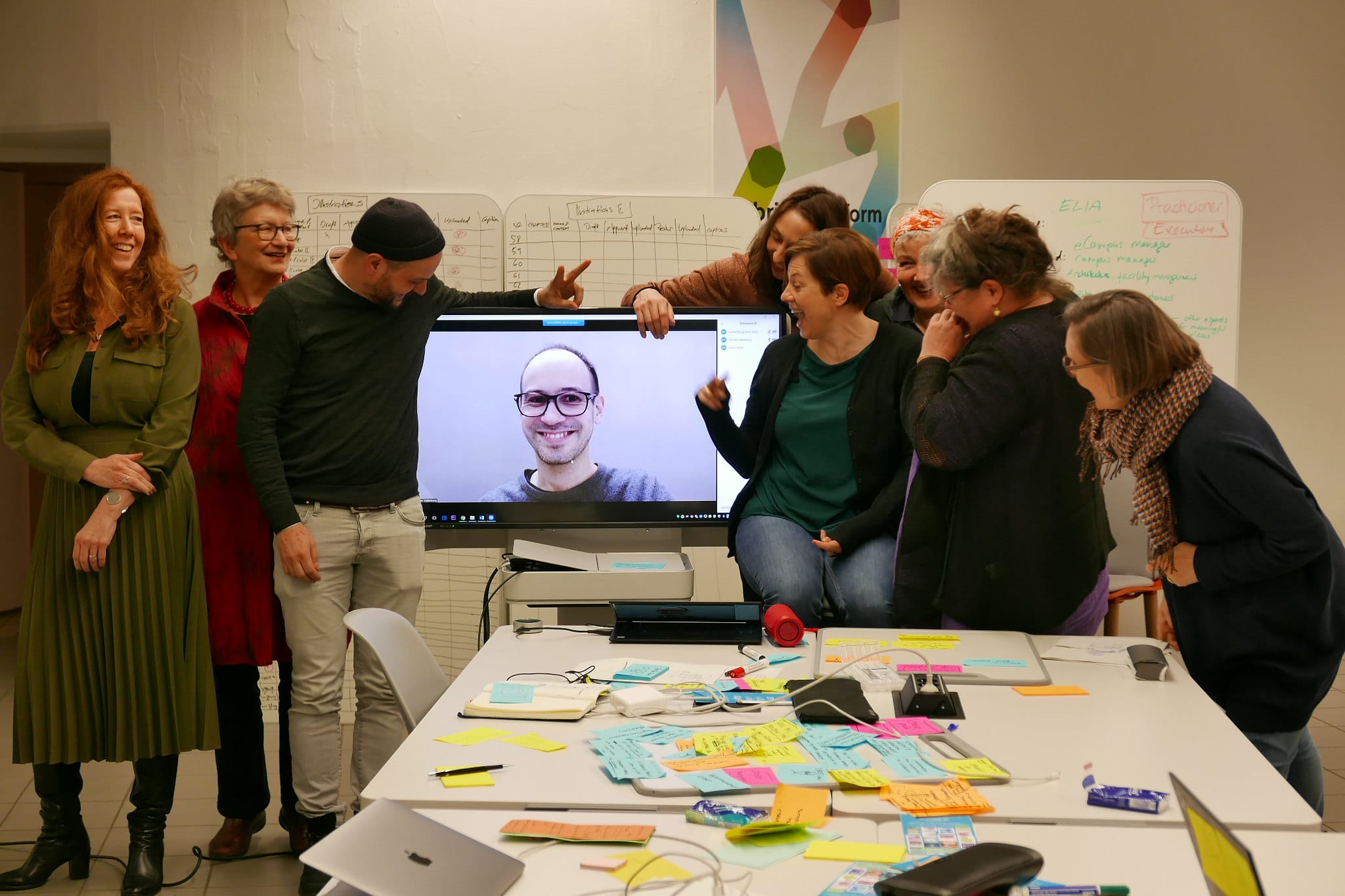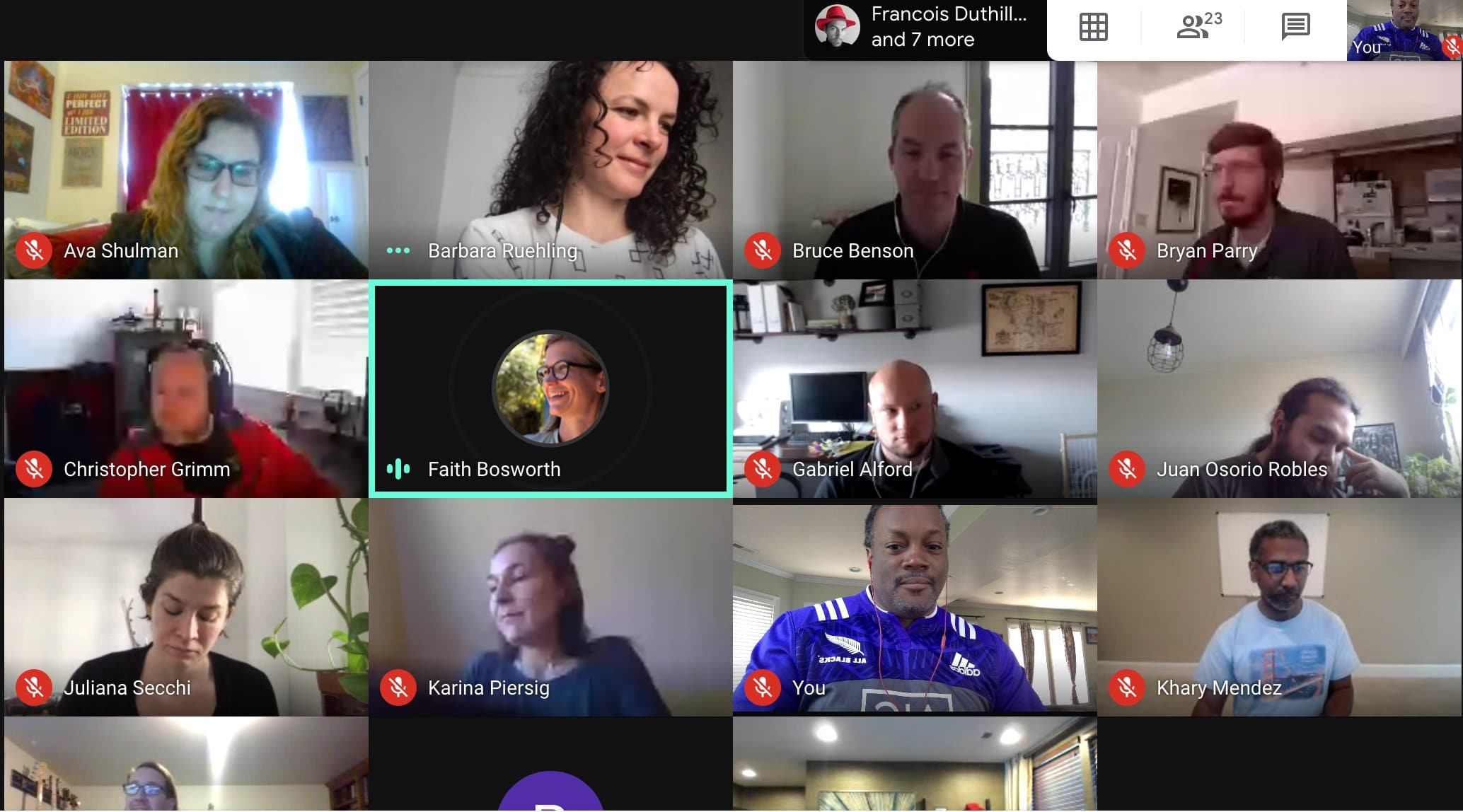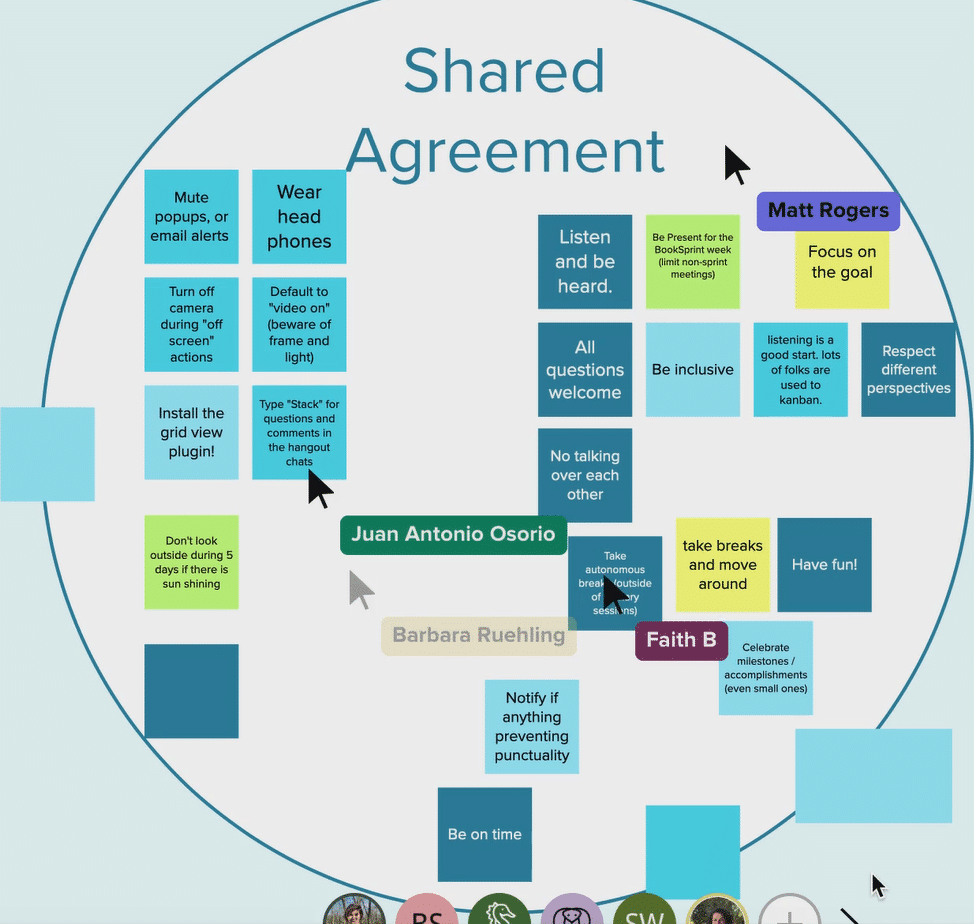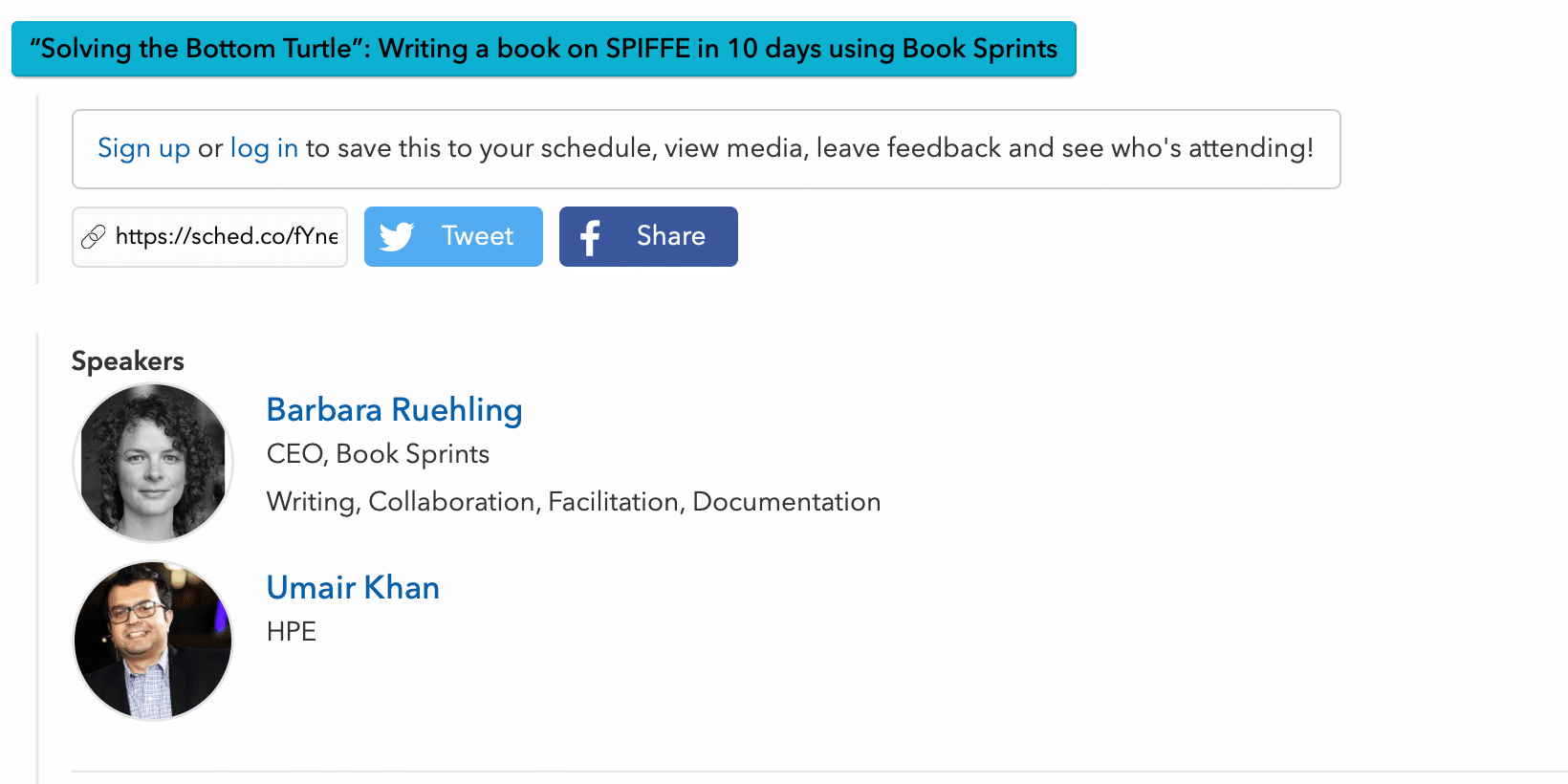Jumping into 2021: A pause for reflection
2020 will definitely stay in people’s memories as a very peculiar year. No matter in what sector we work in, it was a period of challenges for all; whether it was adjusting to unexpected growth and profit, or struggling to make ends meet and keep doors open. Many didn’t manage to do so. It was undoubtedly a transformative year for Book Sprints, as the global COVID-19 pandemic suddenly put our business model to test and we were faced with the need for quick decisions and changes. As 2021 kicks in, we take the opportunity to make a pause for reflection and look back at the past 12 months to acknowledge what happened, and to seek inspiration for what’s unfolding ahead.
A greener organisation
We kicked off the year with a pledge to become a greener organisation. We followed closely the wildfires that took over Australia, and decided to make a donation to the Australian branch of World Wildlife Fund – WWF, an organisation we strongly admire and had the pleasure to work with. Book Sprints has always counted on a small, specialised team working remotely around the world. So, how could we become a greener organisation? An essential part of a Book Sprint used to be sending 1 or 2 facilitators to work with the participants during the 5-day onsite Book Sprint. Other than our travels, there were also the participants and organisers, which could reach up to 18 people. The main idea was to reduce the carbon print of a Book Sprint. That would happen by reducing the overall travels involved through offering hybrid facilitation formats. Months later we were saying to ourselves “Be careful what you wish for!”, as we dived deep into virtual facilitation.
The onsite Book Sprints of 2020
Before worldwide travel restrictions were imposed in March, we held three onsite Book Sprints in 2020: Robotics in Education, Human Centered Data Science, and Hybrid Environments for Universities.
Robotics in Education was our third Book Sprint on the topic of human-robot interactions (HRI). It took place in the United Arab Emirates, following a conference in which the 12 authors of the book participated. The book has been recently translated to German and published by Hanser Verlag.
Human Centered Data Science was an initiative at the University of Washington in Seattle. A much smaller but highly productive team – 5 professors – gathered to write a handbook directed to New Data Science students at the university. We recently heard from the organiser, Prof. Cecilia Aragon, that the final manuscript is due to MIT Press for peer review, and the book will be released soon.
With Hybrid Environments for Universities, we had a sample of what was about to come. Held in Berlin at Technische Universität – TU Berlin in the first days of March, one participant from Sweden was instructed not to travel due to the increase of cases of COVID-19 worldwide. We managed to include him virtually throughout the 5-days, and this way experienced our first hybrid Book Sprint. The book was soon after published by Waxmann Verlag, and launched in August with a successful webinar. During the webinar we heard from authors how well received the book was among scholars and students, since the topic could not be more prominent in the current context.

onsite participants and virtual participant celebrate the conclusion of the Book Sprint at TU Berlin
Travel restrictions: reinventing Book Sprints
The conclusion of Hybrid Environments for Universities was followed by a series of postponing and cancellations of Book Sprints, for obvious reasons. We had nothing for the months ahead in what looked like a massive world crisis and a threat to the survival of our organisation. The odds made us look, for the first time, into online facilitation of groups: how can that work? what do we need? what are the tools? how to foresee and address bottlenecks? what are realistic timeframes and plans?
Running against the clock, we were soon able to offer virtual Book Sprints formats to our clients. In April, Red Hat Inc. was our happy first guinea pig: over 15 participants joined us online through 10 days to write OpenShift Security Guide, and the book was a hit! It ranked n.1 in Amazon Kindle for several days, turning into one of the top technical books of the year.
WWF team was also unafraid to try a virtual Book Sprint. We did the first round of 5 days in the end of April for their facilitation kit manual, followed by a period of 6 months for internal tests and feedback. The last round of 5 days happened in November and the team is working on the last feedback inclusions to have the final draft in hands.

Book Sprints team with Red Hat participants during a plenary session of Openshift Security Guide Book Sprint
Book Sprints goes fully virtual
We needed to see for ourselves that virtual Book Sprints could work. After Red Hat and WWF in April, we held yet 6 virtual Book Sprints in 2020, being two of them what we call Workflow Sprints: the application of the Book Sprints method to improve the workflow of organisations. They are part of the Sprint Lab, our platform to experiment with different content creation formats and methods. The virtual Workflow Sprints were held with OA Switchboard and LIBSENSE, and were both great learning experiences for us in terms of understanding the many possibilities we can still explore with our method.
We had the pleasure of facilitating the 4 virtual Book Sprints that followed with amazing organisations and our long time partners: Hewlett Packard Enterprises – HPE, Cisco, GIZ and a second one with Red Hat. We are immensely grateful for their trust in our processes.
Some of our clients stay hopeful for an onsite Book Sprint opportunity anytime soon; nonetheless it’s clear for us that the virtual format is here to stay. We are almost fully booked for the first half of 2021, which proves not only the applicability of our virtual formats, but an overall adaptability to online work all over the world.

making use of online collaborative tools during virtual Book Sprints
The talks that followed
In between virtual Book Sprints, we enjoyed participating in several webinars and virtual gatherings to discuss our method and the books we had recently produced with online teams. The first of such events was an initiative of author François Duthilleul at Red Hat, who gave us the opportunity to present our method within the internal platforms for Red Hat teams. In May our founder, Adam Hyde, created the Open Publishing Fest, a virtual conference that brought together communities supporting open source software, open content, and open publishing models. We had the opportunity to share our knowledge and learn from peers in several open discussions and panels. The launching webinar for Hybrid Environments for Universities followed, as well as the invite to discuss the making of One Hope, a book we facilitated years ago with a fantastic group and that still holds a wide reach within the community. Over 125 participants joined us at The Linux Foundation KubeCon and CloudNativeCon North America 2020 to learn more about the making of Solving the Bottom Turtle, HPE’s outcome of the virtual Book Sprint. This year we also joined our friends at Book Dash in different talks and a podcast recording.

Invitation to KubeCon participants to join the talk about HPE virtual Book Sprint
We look back at 2020 and realise there’s a lot to be grateful for. Starting with our incredible team who kept the good spirit and resilience to continue delivering in spite of uncertainties. Our amazing clients, who believed in us enough to co-navigate the unfamiliar waters of virtual Book Sprints. And our friends and partner organisations with whom we exchanged precious knowledge, ideas and hope. We enter 2021 with new services to offer, happy team and clients, and the confirmation of the resourcefulness and magic of our method for collaborative content creation.
